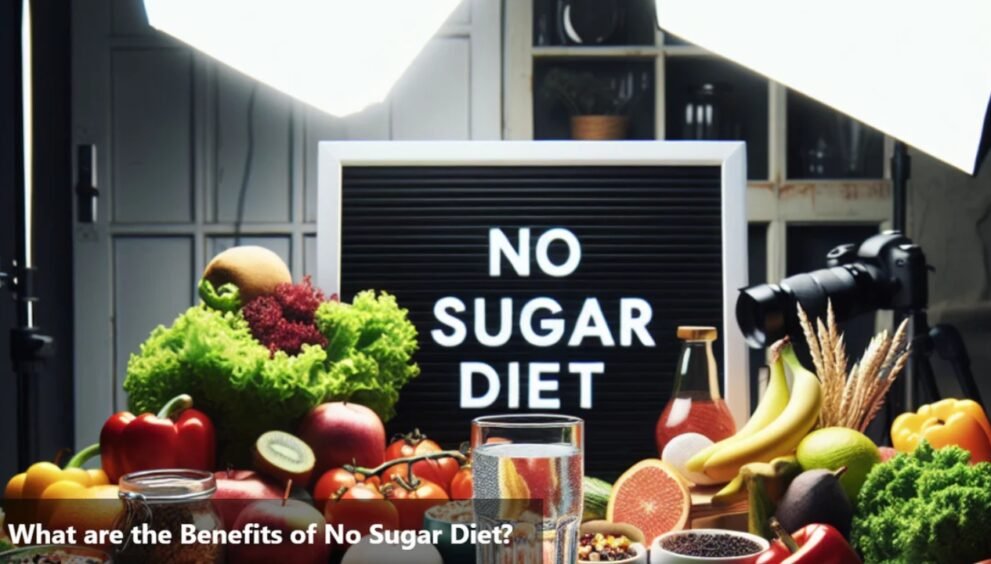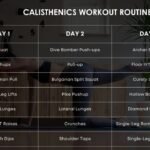No Sugar Diet Secrets Americans Must Know Now

In recent years, the no sugar diet has become a buzzword within the American fitness and wellbeing community. More people are discovering the hidden risks of excessive sugar intake and are looking for ways to reduce or eliminate added sugars from their diets. The no sugar diet, which focuses on cutting out refined sugars and sweetened products, promises improved energy, weight loss, and better overall health. This article explores what a no sugar diet really entails, why it matters, and how it can be effectively integrated into everyday life.
What is a No Sugar Diet?
At its core, a no sugar diet involves eliminating all forms of added sugars from your food consumption. This means avoiding processed foods, sugary beverages, desserts, and even certain sauces or dressings that contain hidden sugars. It’s crucial to distinguish between natural sugars found in whole fruits and vegetables, and added sugars that manufacturers include for flavor and preservation. The goal is to significantly reduce or completely cut out added sugars to lower the risk of chronic diseases and improve metabolic health.
The Impact of Sugar on American Health
Americans consume an average of 17 teaspoons of added sugar per day, far exceeding the American Heart Association’s recommended limits of 6 teaspoons for women and 9 teaspoons for men. Excessive sugar intake is linked to several health problems, including obesity, type 2 diabetes, heart disease, and dental issues. Studies from Google Scholar consistently show that lowering sugar intake leads to significant improvements in blood glucose levels, weight management, and cardiovascular health.
Dr. Lisa Moskovitz, a registered dietitian, states, “Cutting out added sugars not only helps in weight control but also reduces inflammation and lowers the risk for chronic diseases.”
This expert insight underscores why the no sugar diet is more than just a trend—it’s a vital lifestyle change for lasting health.
How the No Sugar Diet Benefits Your Body and Mind
Adopting a no sugar diet can yield numerous benefits beyond just physical health. Firstly, many people report more stable energy levels throughout the day. Without the spikes and crashes caused by sugar highs, your body maintains consistent fuel, leading to better focus and productivity.
Secondly, a no sugar diet helps improve mood and cognitive function. Research indicates that excessive sugar intake can negatively affect brain health and increase the risk of depression and anxiety. By eliminating sugar, many people enjoy enhanced mental clarity and emotional well-being.
Thirdly, the diet supports weight loss and fat reduction. Sugar is calorie-dense and often leads to overeating because it doesn’t provide lasting fullness. Reducing sugar intake allows your body to burn fat more efficiently and decreases cravings for unhealthy snacks.
Practical Tips for Starting a No Sugar Diet
Transitioning to a no sugar diet might seem daunting at first, especially considering how pervasive sugar is in American food culture. However, with mindful choices and preparation, it becomes manageable and sustainable.
Start by reading nutrition labels carefully. Ingredients like high fructose corn syrup, sucrose, dextrose, and maltose are all forms of added sugar. Replace sugary drinks with water, herbal teas, or infused water to satisfy flavor without sugar.
Incorporate whole foods like fresh vegetables, fruits, nuts, lean proteins, and whole grains. While fruits contain natural sugars, their fiber content helps regulate blood sugar levels and provides essential nutrients.
Meal prepping can help avoid impulsive choices that often involve sugary convenience foods. Gradually reduce your sugar intake to prevent withdrawal symptoms and adjust your taste buds.
Common Challenges and How to Overcome Them
Many people face sugar cravings and withdrawal symptoms when starting a no sugar diet. These may include headaches, irritability, or fatigue. Understanding these symptoms as temporary helps in pushing through the initial adjustment period.
Social settings can also be tricky when friends or family indulge in sugary treats. Planning ahead, bringing your own snacks, or explaining your dietary goals can reduce temptation.
Another challenge is recognizing hidden sugars in unexpected products like salad dressings, bread, and even yogurt. Being diligent about checking ingredient lists is essential.
The Role of Natural Sweeteners and Alternatives
Some people wonder if natural sweeteners like honey, maple syrup, or agave nectar are acceptable on a no sugar diet. While these options are less processed, they still contain sugars that affect blood glucose levels. Therefore, many versions of the no sugar diet recommend limiting or avoiding these sweeteners as well.
Instead, focusing on foods that are naturally sweet, such as berries or cinnamon-spiced dishes, can satisfy sweet cravings without added sugars. Additionally, some people use sugar substitutes like stevia or monk fruit extract, which do not raise blood sugar and are considered safe in moderation.
Scientific Evidence Supporting the No Sugar Diet
Numerous clinical studies confirm the health benefits of reducing added sugar intake. For instance, a 2019 study published in the Journal of the American College of Cardiology found that higher intake of added sugars was linked to an increased risk of cardiovascular disease mortality. Another meta-analysis from Nutrients (2020) showed that cutting sugar leads to significant reductions in body weight and improvements in metabolic markers.
Furthermore, the no sugar diet aligns with broader dietary guidelines that emphasize limiting added sugars to promote longevity and reduce chronic disease risk.
Conclusion: Is the No Sugar Diet Right for You?
Adopting a no sugar diet offers a path toward better health, greater energy, and disease prevention, especially for Americans facing high rates of sugar-related health problems. While it requires commitment and lifestyle adjustments, the benefits are profound and scientifically validated. Whether your goal is weight loss, improved mental clarity, or simply feeling better day to day, cutting back on added sugars is a powerful step.
Remember, the no sugar diet is not about perfection but progress. Starting small, staying informed, and seeking support can help you make lasting changes for a healthier, happier life.
If you want a healthier lifestyle, starting a no sugar diet is one of the smartest moves you can make. As Dr. Moskovitz aptly puts it,
“Reducing sugar intake is one of the simplest and most effective changes for improving overall wellness.”








































































































































































































































































































































































































































































































